Text
Cyber Security Consulting Services by CMS IT Services

In today's fast-paced digital landscape, ensuring the security of your digital assets is more critical than ever. Cyber threats continue to evolve, becoming more sophisticated and posing serious risks to businesses of all sizes. This is where CMS IT Services, a leading player in the realm of cyber security consulting, steps in with tailored solutions to fortify your digital defenses.
I. Introduction
A. Definition of Cyber Security Consulting Services
Cyber security consulting services involve a strategic approach to safeguarding digital assets, networks, and sensitive information from cyber threats. These services go beyond conventional security measures, offering comprehensive solutions to address the dynamic nature of cyber risks.
B. Importance of Cyber Security in the Digital Age
In an era where virtually every aspect of business and communication relies on digital platforms, the importance of cyber security cannot be overstated. Cyber attacks can lead to data breaches, financial losses, and reputational damage, making robust security measures a necessity.
II. Understanding CMS IT Services
A. Overview of CMS IT Services
CMS IT Services is a prominent player in the IT solutions landscape, with a specific focus on providing top-notch cyber security consulting services. With a rich history and a team of seasoned professionals, CMS IT Services has positioned itself as a go-to partner for businesses seeking robust cyber security solutions.
B. Expertise in Cyber Security Consulting
CMS IT Services brings a wealth of expertise to the table, combining industry knowledge with cutting-edge technologies. The company's approach involves understanding the unique challenges each client faces and devising customized strategies to mitigate cyber risks effectively.
III. The Growing Need for Cyber Security Consulting
A. Evolving Threat Landscape
The threat landscape in the cyber realm is in a constant state of flux. Cybercriminals employ sophisticated tactics, ranging from phishing attacks to ransomware, necessitating a proactive and adaptive approach to security.
B. Impact on Businesses
Cyber attacks can have severe consequences for businesses, ranging from financial losses to damage to reputation. CMS IT Services recognizes the gravity of these threats and offers solutions designed to minimize the impact and ensure business continuity.
IV. Key Features of CMS IT Services
A. Tailored Solutions
One size does not fit all in cyber security. CMS IT Services understands this and provides tailored solutions that align with the unique needs and risk profiles of each client.
B. Cutting-Edge Technologies
Staying ahead of cyber threats requires leveraging the latest technologies. CMS IT Services integrates cutting-edge tools and technologies to provide proactive and effective security measures.
C. Experienced Cyber Security Professionals
The team at CMS IT Services comprises seasoned professionals with extensive experience in the field of cyber security. Their collective knowledge enables the delivery of high-quality services and ensures clients receive expert guidance.
V. Benefits of Cyber Security Consulting Services
A. Proactive Threat Mitigation
CMS IT Services adopts a proactive approach to threat mitigation, identifying vulnerabilities before they can be exploited and implementing measures to strengthen security.
B. Compliance Assurance
In an era of stringent data protection regulations, compliance is non-negotiable. CMS IT Services ensures that clients meet and exceed regulatory requirements, avoiding legal complications.
C. Incident Response and Recovery
No system is entirely immune to cyber attacks. CMS IT Services equips clients with robust incident response and recovery plans, minimizing downtime and ensuring a swift return to normal operations.
VI. How CMS IT Services Stands Out
A. Comprehensive Risk Assessment
Understanding the risks specific to a business is crucial. CMS IT Services conducts thorough risk assessments to identify potential vulnerabilities and devise strategies to address them effectively.
B. Continuous Monitoring and Analysis
Cyber threats are dynamic, and so should be the response. CMS IT Services employs continuous monitoring and analysis to stay ahead of emerging threats and adapt security measures accordingly.
C. Client Success Stories
The success of CMS IT Services is best reflected in the positive experiences of its clients. Real-world success stories demonstrate the company's ability to deliver tangible results in the realm of cyber security.
VII. Cyber Security Trends and Innovations
A. Emerging Technologies
The field of cyber security is ever-evolving, with new technologies constantly reshaping the landscape. CMS IT Services stays at the forefront by embracing emerging technologies and incorporating them into its security solutions.
B. Adaptive Security Measures
Static security measures are no match for dynamic threats. CMS IT Services emphasizes adaptive security measures that evolve alongside the threat landscape, providing clients with long-term protection.
VIII. Challenges in Cyber Security
A. Addressing Common Misconceptions
Misconceptions about cyber security can leave businesses vulnerable. CMS IT Services addresses common myths and educates clients to foster a better understanding of the ever-changing threat landscape.
B. Navigating Regulatory Changes
The regulatory landscape for cyber security is constantly evolving. CMS IT Services helps clients navigate these changes, ensuring continued compliance and minimizing the risk of legal repercussions.
IX. Industry-specific Solutions
A. Tailored Approaches for Various Sectors
Different industries face unique cyber security challenges. CMS IT Services develops tailored approaches, taking into account the specific needs and nuances of each sector.
B. Case Studies on Successful Implementations
Success in cyber security is measurable. CMS IT Services presents case studies showcasing how its solutions have effectively addressed challenges and enhanced the security posture of diverse businesses.
X. Choosing the Right Cyber Security Consulting Partner
A. Factors to Consider
Choosing a cyber security consulting partner requires careful consideration. CMS IT Services outlines key factors that businesses should weigh when selecting a partner to safeguard their digital assets.
B. Why CMS IT Services Excels
CMS IT Services stands out in the competitive landscape due to its commitment to excellence, client-centric approach, and a track record of delivering results. Choosing CMS IT Services means choosing a partner dedicated to your digital security.
XI. Future Outlook of Cyber Security
A. Anticipated Trends
The future of cyber security holds exciting yet challenging prospects. CMS IT Services provides insights into anticipated trends and how businesses can prepare for the evolving threat landscape.
B. Preparing for Future Threats
Proactive measures are essential for future-proofing cyber security. CMS IT Services offers guidance on how businesses can stay ahead of emerging threats and adapt their security strategies accordingly.
XII. Testimonials from CMS IT Services Clients
A. Positive Experiences
Clients who have benefited from CMS IT Services share their positive experiences, highlighting the tangible impact the company's cyber security solutions have had on their operations.
B. Results Achieved
Measurable results speak volumes. CMS IT Services presents quantifiable results achieved through its Cyber Security Consulting Services, demonstrating the real-world value delivered to clients.
XIII. Conclusion
A. Recap of Key Points
In the ever-evolving landscape of cyber threats, having a reliable and proactive cyber security partner is paramount. CMS IT Services, with its tailored solutions, cutting-edge technologies, and experienced professionals, stands as a beacon of security in the digital age.
B. The Ongoing Need for Cyber Security Consulting
As technology advances, so do cyber threats. The need for robust Cyber Security Consulting Services is ongoing, and CMS IT Services remains committed to addressing these challenges and safeguarding businesses.
XIV. Frequently Asked Questions (FAQs)
A. What sets CMS IT Services apart in the cyber security landscape?
CMS IT Services distinguishes itself through a combination of tailored solutions, cutting-edge technologies, and a team of experienced professionals dedicated to addressing the unique cyber security needs of each client.
B. How does CMS IT Services approach client-specific cyber security challenges?
CMS IT Services takes a personalized approach, conducting comprehensive risk assessments and developing customized strategies to address the specific cyber security challenges faced by each client.
C. Can small businesses benefit from cyber security consulting?
Absolutely. CMS IT Services recognizes that cyber threats affect businesses of all sizes. The company offers scalable solutions that cater to the unique needs and budget constraints of small businesses.
D. What are the typical costs associated with hiring cyber security consulting services?
Costs vary based on the scope of services and the complexity of the client's cyber security needs. CMS IT Services provides transparent pricing structures, ensuring clients understand the value they receive.
E. How does CMS IT Services stay ahead of emerging cyber threats?
CMS IT Services stays ahead by embracing emerging technologies, continuous monitoring, and analysis of the threat landscape. The company prioritizes ongoing training for its team to ensure they remain at the forefront of cyber security innovations.
0 notes
Text
Understanding the Importance of Cyber Security Consulting Services
In today's digital age, where information is a valuable asset, protecting your data and systems from cyber threats has become a paramount concern for businesses and organizations. Cyberattacks can result in significant financial losses, damage to reputation, and data breaches, making it essential for companies to invest in robust cybersecurity measures. This article delves into the world of cyber security consulting services, exploring the key aspects of these services, their significance, and how they can safeguard your digital infrastructure.
Introduction
In the interconnected world we live in, where organizations heavily rely on digital systems and data, cyber threats have proliferated. Cybersecurity breaches can lead to disastrous consequences, and that's where cyber security consulting services come to the rescue.
What Are Cyber Security Consulting Services?
Cyber security consulting services encompass a wide range of expertise and solutions designed to protect your organization's digital assets. These services are provided by experts who assess, plan, implement, and manage security measures.
The Rising Threat Landscape
The digital landscape is constantly evolving, and so are cyber threats. It's crucial to understand the current threat landscape and the risks it poses to your organization.
The Benefits of Cyber Security Consulting
Investing in cyber security consulting services offers numerous advantages, from protecting your business from financial losses to maintaining a strong reputation. Visit: robotic process automation services
Tailored Solutions for Businesses
Every business is unique, and so are its security needs. Cyber security consultants provide tailored solutions that fit the specific requirements of your organization.
Risk Assessment and Management
Identifying and managing risks is a fundamental aspect of cybersecurity consulting. Experts analyze potential threats and develop strategies to mitigate them.
Regulatory Compliance
Staying compliant with industry regulations and standards is essential. Cyber security consultants ensure that your business adheres to these requirements.
Incident Response Planning
Preparation is key. Consultants help organizations develop incident response plans to address and recover from cyberattacks efficiently.
Cybersecurity Awareness Training
A well-informed workforce is your first line of defense. Consultants offer training to raise cybersecurity awareness among your employees. Visit: penetration testing services
Ongoing Monitoring and Updates
Cyber threats are ever-evolving. Continuous monitoring and updates are essential to stay ahead of potential threats.
Securing Data and Networks
Protecting data and network integrity is at the core of cybersecurity consulting services. Consultants implement security measures to safeguard your critical assets.
Key Technologies Employed
Cyber security consultants leverage a variety of technologies, from firewalls and intrusion detection systems to encryption and threat intelligence.
Challenges in Cyber Security Consulting
This section addresses the common challenges that businesses may face when implementing cybersecurity measures.
Selecting the Right Cyber Security Consultant
Choosing the right consultant is crucial. This heading explores the criteria for selecting the most suitable cybersecurity partner.
Conclusion
In a world filled with digital uncertainties, cyber security consulting services are the shields that protect your organization from the ever-present threats. By investing in these services, you not only secure your data and systems but also ensure the continuity of your business operations.
0 notes
Text
Robotic Process Automation in Banking: Streamlining Operations for a Digital Future

In the ever-evolving landscape of the financial industry, banks are constantly seeking innovative ways to enhance efficiency, reduce costs, and provide a seamless customer experience. One such groundbreaking technology that has revolutionized the banking sector is Robotic Process Automation (RPA). This article delves into the world of RPA and its profound impact on the banking industry. A guide Robotic Process Automation in Banking.
The banking sector is no stranger to technological advancements, and the introduction of Robotic Process Automation (RPA) has brought a new wave of innovation. RPA is essentially the use of software robots or "bots" to automate repetitive tasks and processes within an organization.
2. Understanding Robotic Process Automation (RPA)
RPA systems are designed to mimic human actions, such as data entry, data extraction, and communication with various systems. These bots can work around the clock without breaks, ensuring tasks are completed with utmost accuracy and speed.
3. RPA Implementation in Banking
3.1 Benefits of RPA in Banking
Enhanced Efficiency: RPA eliminates human errors and accelerates processes, leading to faster transaction processing and reduced operational costs.
Improved Customer Service: With routine tasks automated, bank employees can focus on more complex customer inquiries, enhancing overall customer satisfaction.
Cost Savings: Banks can significantly reduce labor costs by deploying RPA for routine back-office tasks.
3.2 Use Cases of RPA in Banking
Loan Processing: RPA can expedite loan application processing by automating data collection and verification.
KYC Compliance: Know Your Customer (KYC) checks can be automated, ensuring regulatory compliance.
Account Reconciliation: RPA can swiftly reconcile discrepancies in accounts, reducing the risk of financial errors.
4. Challenges and Considerations
4.1 Security Concerns
While RPA offers immense benefits, it also introduces security challenges. Banks must ensure the bots' activities are monitored and secured to prevent data breaches.
4.2 Integration Complexity
Integrating RPA into existing banking systems can be complex. Banks need a robust strategy to seamlessly incorporate automation without disrupting core operations. Checkout: Robotic Process Automation Services
5. The Future of RPA in Banking
The adoption of RPA in the banking sector is expected to grow exponentially. Banks will continue to explore advanced AI and machine learning capabilities to further enhance automation.
6. Conclusion
Robotic Process Automation is a game-changer for the banking industry. It streamlines operations, reduces costs, and empowers employees to focus on strategic tasks. Embracing RPA is not just a technological advancement but a necessity in the digital age.
7. FAQs
Q1: Is RPA suitable for all types of banking processes?
A1: RPA is best suited for repetitive, rule-based tasks. However, its applicability varies depending on the process.
Q2: Are there any security risks associated with RPA in banking?
A2: Yes, security is a concern. Banks must implement robust security measures to protect against potential threats.
Q3: What is the typical ROI for RPA implementation in banking?
A3: ROI varies based on the processes automated, but many banks see a significant return on investment within a year.
Q4: Can RPA replace human employees in banks?
A4: RPA augments human work but doesn't replace it entirely. It allows employees to focus on more complex tasks.
Q5: How can banks ensure compliance when using RPA?
A5: Banks should design RPA processes with compliance in mind and regularly audit bot activities to ensure adherence to regulations.
In summary, Robotic Process Automation is reshaping the banking sector by optimizing operations and elevating customer experiences. Embracing this technology is not just an option; it's a strategic move towards a more efficient and competitive future in the financial industry. Checkout: Robotic Process Automation in Banking
0 notes
Text
Business Process Automation: Revolutionizing Efficiency and Productivity
Digital process automation intelligent process automation
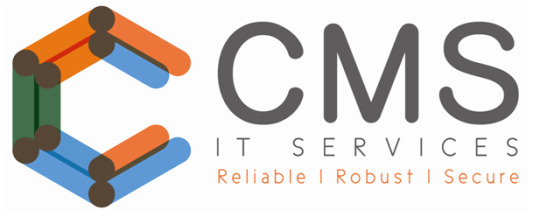
In today's fast-paced business world, staying competitive and agile is paramount for any organization's success. Business Process Automation (BPA) has emerged as a game-changing solution, empowering companies to streamline their operations, enhance efficiency, reduce costs, and optimize overall productivity. By leveraging cutting-edge technologies, BPA automates manual tasks, standardizes processes, and enables seamless integration, freeing up valuable human resources to focus on strategic initiatives and innovation.
Understanding Business Process Automation (BPA):
Business Process Automation involves the use of technology to automate repetitive, rule-based, and time-consuming tasks across various departments within an organization. It encompasses a range of tools and methodologies, including Robotic Process Automation (RPA), Workflow Automation, Artificial Intelligence (AI), Machine Learning (ML), and Business Process Management (BPM) software. Checkout: Robotic Processing Automation
Benefits of Business Process Automation:
Increased Efficiency: BPA eliminates the need for manual intervention, allowing processes to be completed faster and more accurately. This enhanced efficiency leads to a reduction in operational costs and time savings.
Improved Productivity: By automating routine tasks, employees can focus on higher-value activities, fostering creativity, problem-solving, and strategic decision-making.
Enhanced Accuracy: Human errors can be costly and time-consuming to rectify. BPA ensures consistent and error-free execution, leading to improved data accuracy and overall quality. Visit: Intelligent Process Automation
Seamless Integration: BPA solutions can be seamlessly integrated with existing IT infrastructure and applications, ensuring a smooth transition and reducing the need for extensive modifications.
Scalability and Flexibility: BPA allows organizations to scale up or down based on business demands, ensuring adaptability in dynamic market conditions.
Enhanced Compliance: By automating processes, organizations can ensure adherence to regulatory requirements and industry standards, reducing the risk of non-compliance.
Data Insights: BPA generates valuable data insights that facilitate data-driven decision-making, enabling organizations to identify trends, analyze performance, and strategize effectively. Checkout: Cybersecurity Consulting
Applications of Business Process Automation:
Finance and Accounting: BPA automates invoice processing, expense management, and financial reporting, reducing the time spent on manual data entry and improving financial accuracy.
Human Resources: Automation streamlines recruitment, employee onboarding, performance evaluations, and payroll processing, enabling HR teams to focus on employee development.
Customer Service: BPA supports customer service operations through chatbots, automated ticketing systems, and self-service portals, ensuring faster response times and better customer experiences. Visit: End Point Security
Supply Chain Management: Automation optimizes inventory management, order processing, and logistics, improving supply chain efficiency and reducing delays.
Marketing and Sales: BPA aids in lead nurturing, email marketing, sales forecasting, and customer relationship management, enhancing the effectiveness of marketing and sales efforts.
Challenges and Considerations:
While BPA offers significant advantages, organizations must consider some challenges during implementation:
Process Complexity: Not all processes are easily automatable, especially those involving complex decision-making or unstructured data. Visit: Digital Process Automation
Change Management: Employees may resist automation due to fear of job displacement. Effective change management is crucial to ensure a smooth transition.
Security and Privacy: Handling sensitive data requires robust security measures to protect against data breaches and potential compliance issues.
Conclusion:
Business Process Automation is a transformative approach that empowers organizations to optimize their operations, achieve operational excellence, and drive business growth. By embracing automation technologies and fostering a culture of innovation, businesses can unlock their full potential, respond to market changes swiftly, and deliver exceptional value to customers. As BPA continues to evolve, organizations that prioritize automation will be better positioned to thrive in a dynamic and competitive business landscape. Visit: IT Process Automation
#robotic processing automation#business process automation#intelligent process automation#digital process automation#user experience management
0 notes
Text
The Role of Managed IT Services in Boosting Business Efficiency and Productivity
AIOps automation business process automation

Introduction
Understanding Managed IT Services
Advantages of Managed IT Services | Robotic Processing Automation
How Managed IT Services Benefit Small Businesses
Choosing the Right Managed IT Service Provider
Implementing Managed IT Services Successfully
The Future of Managed IT Services
Case Studies: Real-Life Success Stories
Conclusion
FAQs
3.1 Cost-Effectiveness
3.2 Enhanced Security
3.3 Proactive Maintenance and Support
3.4 Access to Expertise
4.1 Scaling Flexibility
4.2 Focus on Core Business Activities
4.3 Competitive Edge
5.1 Assessing Business Needs
5.2 Evaluating Provider Capabilities
5.3 Client Reviews and Testimonials
6.1 Planning and Onboarding
6.2 Seamless Integration | Business Process Automation
6.3 Communication and Training
10.1 What services are typically included in managed IT services?
10.2 Can managed IT services improve data security?
10.3 How do managed IT services help businesses stay competitive?
10.4 How much do managed IT services cost?
10.5 Are managed IT services suitable for small businesses?
The Role of Managed IT Services in Boosting Business Efficiency and Productivity
1. Introduction
In today's fast-paced business landscape, technology plays a crucial role in driving growth and innovation. However, managing complex IT infrastructure and staying up-to-date with the latest advancements can be a daunting task for businesses of all sizes. This is where Managed IT Services step in to revolutionize the way organizations handle their technology needs. In this article, we will explore the concept of Managed IT Services and how they can significantly improve business efficiency and productivity. Visit: Intelligent Process Automation
2. Understanding Managed IT Services
Managed IT Services refer to the practice of outsourcing the management, maintenance, and support of a company's IT infrastructure to a specialized service provider. These providers, known as Managed Service Providers (MSPs), take a proactive approach to handle IT tasks and ensure that systems and networks operate smoothly.
3. Advantages of Managed IT Services
3.1 Cost-Effectiveness
Outsourcing IT management can lead to substantial cost savings. With Managed IT Services, businesses can avoid the expenses of hiring and training in-house IT staff. Instead, they pay a predictable monthly fee for the services they require, making it easier to budget and allocate resources efficiently.
3.2 Enhanced Security
Cybersecurity is a top concern for businesses today. Managed IT Service Providers employ cutting-edge security measures to protect their clients from cyber threats and data breaches. Regular monitoring, updates, and backups ensure that sensitive business data remains safe and secure. Visit: Cybersecurity Consulting
3.3 Proactive Maintenance and Support
Rather than waiting for IT issues to arise, Managed IT Services focus on proactive maintenance. Regular system checks and performance optimizations help identify and address potential problems before they disrupt business operations.
3.4 Access to Expertise
Managed IT Service Providers employ skilled IT professionals with expertise in various technologies and industries. This means businesses can access a diverse range of skills and knowledge without having to hire individual specialists.
4. How Managed IT Services Benefit Small Businesses
4.1 Scaling Flexibility
Small businesses often face fluctuating IT demands. Managed IT Services offer the flexibility to scale up or down based on changing business requirements. This agility allows small businesses to adapt to market changes without overburdening their budgets. Visit: Digital Process Automation
4.2 Focus on Core Business Activities
By delegating IT responsibilities to experts, small businesses can focus on their core competencies and strategic objectives. This concentration on essential tasks leads to increased productivity and better business outcomes.
4.3 Competitive Edge
Managed IT Services provide access to enterprise-level technology that might otherwise be financially unfeasible for small businesses. This access levels the playing field, allowing smaller companies to compete with more substantial enterprises effectively.
5. Choosing the Right Managed IT Service Provider
5.1 Assessing Business Needs
Before selecting an MSP, businesses must assess their IT requirements thoroughly. Understanding their specific needs will help them find a provider that aligns with their goals and objectives. Visit: Intelligent Process Automation
5.2 Evaluating Provider Capabilities
Not all MSPs are created equal. It's essential to evaluate the track record and capabilities of potential service providers. This includes reviewing their portfolio, client testimonials, and the range of services offered.
5.3 Client Reviews and Testimonials
Client reviews and testimonials offer valuable insights into the quality of service provided by an MSP. Checking these reviews can help businesses gauge the provider's reputation and customer satisfaction.
6. Implementing Managed IT Services Successfully
6.1 Planning and Onboarding
A successful implementation begins with careful planning and onboarding. Businesses should work closely with their chosen MSP to outline goals and establish effective communication channels. Visit: AIOps Automation
6.2 Seamless Integration
Integrating managed services into existing IT infrastructure requires a well-executed strategy. A seamless integration process ensures minimal disruption and a smooth transition.
6.3 Communication and Training
Open communication and adequate training are essential for employees to adapt to the changes brought about by managed IT services. Educating staff about the benefits and usage of new technologies fosters a positive work environment.
7. The Future of Managed IT Services
The landscape of Managed IT Services continues to evolve rapidly. As technology advances, MSPs will likely offer more innovative solutions to address emerging challenges and opportunities.
8. Case Studies: Real-Life Success Stories
Highlighting real-life success stories of businesses that have benefited from Managed IT Services provides concrete evidence of the impact on business growth and efficiency. Visit: Hybrid IT operations
9. Conclusion
In conclusion, Managed IT Services have become indispensable for modern businesses looking to enhance efficiency and productivity. By outsourcing IT management to expert providers, businesses can enjoy cost savings, heightened security, and access to specialized expertise. Small businesses, in particular, stand to gain the most, as managed services enable them to focus on core activities and compete effectively in the market.
10. FAQs
10.1 What services are typically included in managed IT services?
Managed IT Services typically include network monitoring, data backups, cybersecurity, software updates, and help desk support.
10.2 Can managed IT services improve data security?
Yes, managed IT services employ robust security measures to safeguard business data from cyber threats and potential breaches.
10.3 How do managed IT services help businesses stay competitive?
Managed IT services grant smaller businesses access to advanced technologies, leveling the playing field and enabling them to compete with larger enterprises. Visit: Robotic Processing Automation
10.4 How much do managed IT services cost?
The cost of managed IT services varies based on the scope of services required. Generally, they are cost-effective compared to maintaining an in-house IT team.
10.5 Are managed IT services suitable for small businesses?
Absolutely! Managed IT services are particularly beneficial for small businesses, offering cost savings, scalability, and access to specialized expertise.
0 notes
Text
In today's rapidly evolving digital landscape, cybersecurity has become a paramount concern for individuals and organizations alike. Cyber threats are becoming more sophisticated and prevalent, challenging traditional antivirus and Endpoint Detection and Response (EDR) solutions to keep pace. To fortify defenses against cyber-attacks, migrating to AI and ML-boosted cloud-based antivirus and EDR systems has emerged as a game-changing strategy. This article explores the numerous benefits of this cutting-edge approach to safeguarding digital assets and ensuring a resilient cybersecurity posture. Checkout: Cyber Security Consulting
0 notes
Text
Cloud-Based Anti-Virus and EDR: Enhancing Cybersecurity for Your Organization
In today's digital age, businesses face an ever-evolving landscape of cyber threats that can disrupt operations, compromise sensitive data, and damage brand reputation. As cybercriminals become more sophisticated, organizations must adopt robust cybersecurity solutions to safeguard their assets effectively. Cloud-based Anti-Virus (AV) and Endpoint Detection and Response (EDR) systems have emerged as powerful tools to combat modern cyber threats. This article explores what Cloud-Based Anti-Virus and EDR are, their importance, and how your organization can implement them to bolster its security posture.
Visit us at: Zero Trust
0 notes
Link
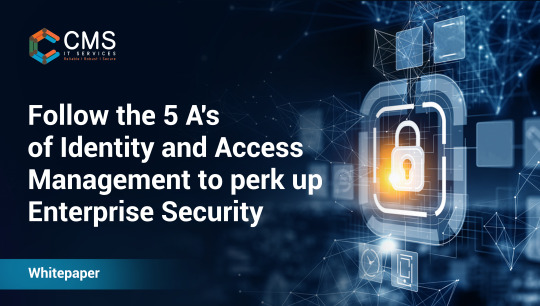
0 notes
Photo
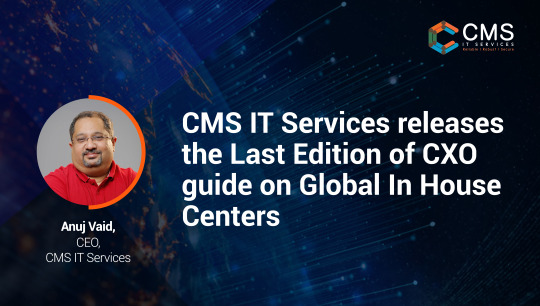
The last edition of GIC concerns #tech trends that will transform #Global #In #House #Centers.
Read More: https://www.ncnonline.net/news-in-brief/cognitive-automation-ai-ml-nlp-blockchain-big-data-to-transform-gic-landscape-in-2022/
0 notes
Link

Join our webinar on Invoice Process Automation on 25th January.
0 notes
Link

Join our webinar on #Invoice Process Automation on 25th January
0 notes
Link

Join our webinar on #Invoice Process Automation on 20th January.
#1daytogo
0 notes
Link
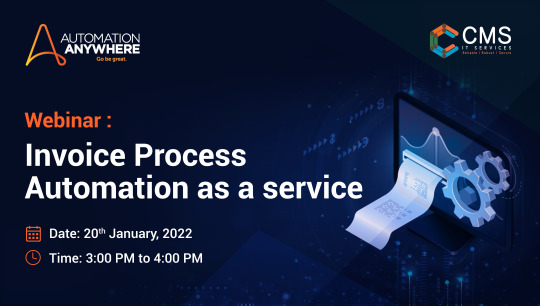
Join our webinar on #Invoice Process Automation on 20th January.
#2daystogo
0 notes
Link
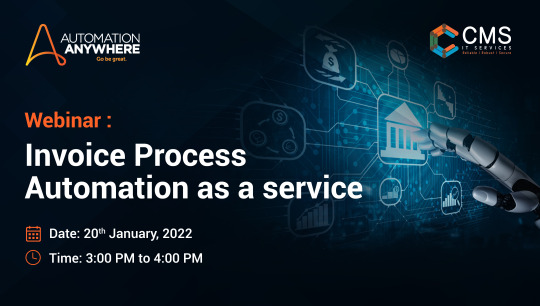
Join our webinar on Invoice Process Automation as a Service on 20th January.
0 notes
Link
Join our webinar on Invoice Process Automation as a Service
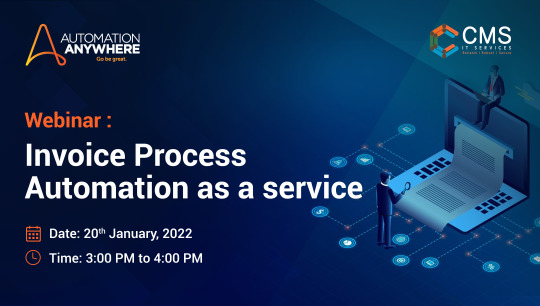
0 notes

